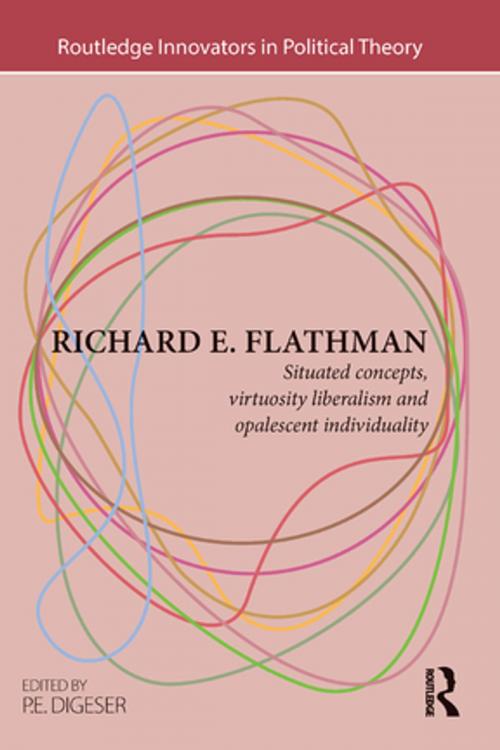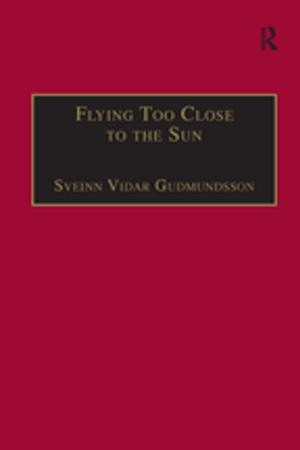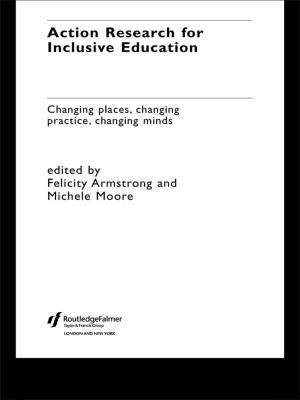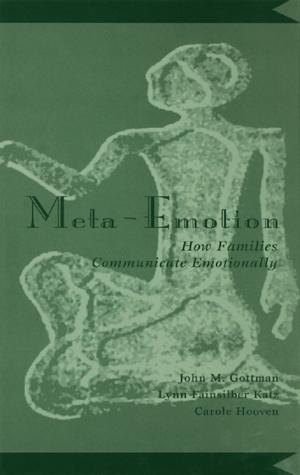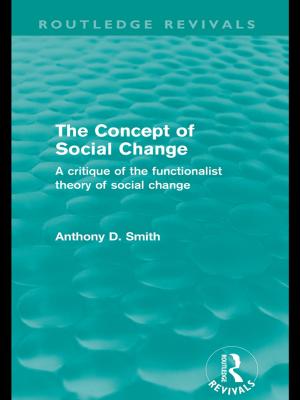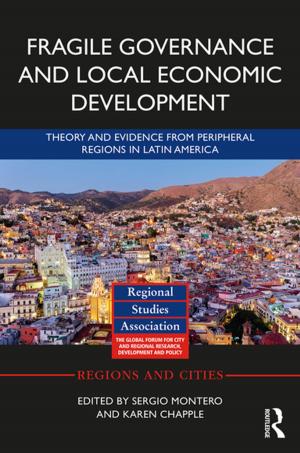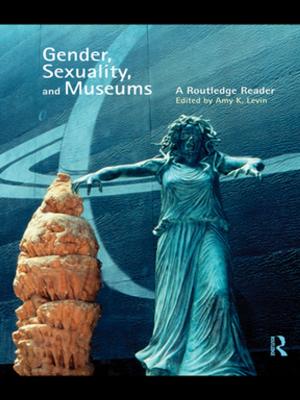Richard E. Flathman
Situated Concepts, Virtuosity Liberalism and Opalescent Individuality
Nonfiction, Social & Cultural Studies, Political Science, Government, Civics, Political Parties| Author: | ISBN: | 9781317527435 | |
| Publisher: | Taylor and Francis | Publication: | August 25, 2016 |
| Imprint: | Routledge | Language: | English |
| Author: | |
| ISBN: | 9781317527435 |
| Publisher: | Taylor and Francis |
| Publication: | August 25, 2016 |
| Imprint: | Routledge |
| Language: | English |
Richard E. Flathman is a ground-breaking theorist of key political concepts, a fierce defender of individuality, a close and original reader of Hobbes and an advocate of a willful conception of liberalism.
In this volume P E Digeser draws together some of his key works. The collection is framed by an introduction and an interview with Flathman, where he reflects on his contributions. By thinking through and with Wittgenstein’s later philosophy of language, his work clarifies and refines terms that are central to politics and to the tradition of political thought. His work also seeks to cure certain persistent muddles and confusions in our political concepts as well as create and defend a space for the opaque and opalescent features of ourselves. Flathman advances a liberalism that is more open to and celebratory of the idiosyncratic as well as to voices not ordinarily associated with the liberal tradition.
The editor has focused on her work in three key areas:
- The first part focuses on Flathman as a theorist of meaning and presents excepts from his analyses of quality, authority, and rights;
- The second part focuses on his contributions to understanding the meaning and value of freedom;
- The final part presents selections that illustrate his conception of liberalism and individuality.
Helping to highlight how the innovations in Flathman's thought have shaped the field of political theory, this collection will be of interest to students and scholars.
Richard E. Flathman is a ground-breaking theorist of key political concepts, a fierce defender of individuality, a close and original reader of Hobbes and an advocate of a willful conception of liberalism.
In this volume P E Digeser draws together some of his key works. The collection is framed by an introduction and an interview with Flathman, where he reflects on his contributions. By thinking through and with Wittgenstein’s later philosophy of language, his work clarifies and refines terms that are central to politics and to the tradition of political thought. His work also seeks to cure certain persistent muddles and confusions in our political concepts as well as create and defend a space for the opaque and opalescent features of ourselves. Flathman advances a liberalism that is more open to and celebratory of the idiosyncratic as well as to voices not ordinarily associated with the liberal tradition.
The editor has focused on her work in three key areas:
- The first part focuses on Flathman as a theorist of meaning and presents excepts from his analyses of quality, authority, and rights;
- The second part focuses on his contributions to understanding the meaning and value of freedom;
- The final part presents selections that illustrate his conception of liberalism and individuality.
Helping to highlight how the innovations in Flathman's thought have shaped the field of political theory, this collection will be of interest to students and scholars.
